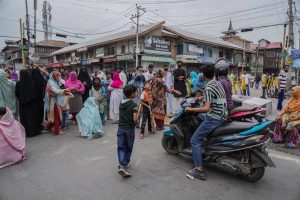On August 5, 2019, the government of India hollowed out Article 370 of the Indian Constitution with a presidential order, overturning a status quo that had lasted for nearly 70 years. The erstwhile princely state of Jammu and Kashmir had been granted a special status under which it had its own constitution and autonomy in its internal affairs.
At the same time as scrapping Article 370, the Indian Parliament passed a bill reorganizing Jammu and Kashmir into two union territories: Jammu and Kashmir, and Ladakh. Unlike Indian states, union territories are federally governed. In essence, New Delhi had moved decisively to exert control over the region.
Five years later, there is considerable discontent in the Kashmir valley and Jammu, too. Security, a primary reason cited by the government for its decision to vitiate Article 370 and reorganize the region, has not improved significantly either. Civil society, independent media, and the local economy have all suffered under pressure, and although the worst has not come to pass – a resumption of widespread armed conflict as in the 1990s – the seeds of conflict may yet sprout.
In the following interview, The Diplomat’s Managing Editor Catherine Putz asks Radha Kumar, a former director-general of the Delhi Policy Group and a specialist on peace and security in South Asia, about the revocation of Jammu and Kashmir’s special status: the Indian government’s goals, the critics’ concerns, and where matters stand five years later.
Can you explain the origin and purpose of Article 370 of the Constitution of India?
Article 370 of the Indian Constitution gave Jammu and Kashmir special status in the Indian union under which it would have its own constitution, laws, and administrative services. Basically it flowed from the Instrument of Accession signed by then Maharaja Hari Singh, under which the state joined the Republic of India on the condition that the only portfolios with the union administration would be defense, foreign affairs, and communications.
Prior to independence, India’s princely states were under British protection but not part of British India. Upon independence most of the princely states joined the Indian union, signing the same accession document that the Maharaja had signed. Soon after accession, however, the majority of princely states merged with the Indian union; in other words, they accepted the Indian Constitution. Jammu and Kashmir did not.
By the time Article 370 was inserted into the constitution, Pakistan had sent armed tribal bands into Jammu and Kashmir to wrest the state and India’s Nehru administration took the issue to the United Nations. The article was, in this context, also a reassurance to the international community that the Indian union would protect the state’s right to self-rule. It was ratified by the Jammu and Kashmir Constitution in 1956.
































